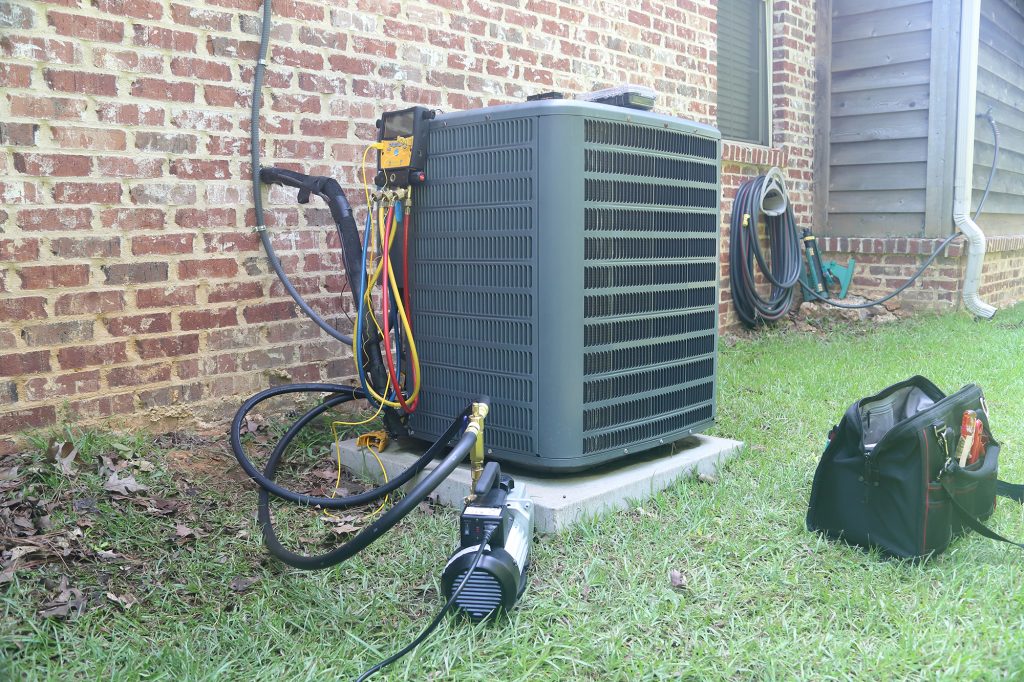
Whether it’s summer heating up your space or cold weather, your comfort depends on your HVAC system. In order to know what to expect from each one, it is important to understand the differences between commercial and residential HVAC systems. Comparing the two, here are seven major differences.
Energy
Because commercial spaces tend to include much more square footage and accommodate more customers, their HVAC systems require more energy than residential systems. Sizing both systems is similar, using variables such as square footage, occupancy number, efficiency, and peak hours of use. For commercial spaces, all these factors tend to have higher values, requiring a higher tonnage output for sufficient cooling and heating. Generally speaking, power output is larger, but a little less accurate, for commercial units. Residential HVAC systems, on the other hand, focus on more accurate sizing for greater cost-effectiveness.
Location
Rooftops for commercial heating and cooling systems are a common location. Although not always the case, the room they take up has to do with a major reason for putting HVAC units in this area. Due to both dimensional space and structural features, placing smaller, residential HVAC system components next to or behind a home tends to be more practical, making rooftop installation less desirable. There are a variety of reasons for commercial applications associated with the placement of HVAC systems on the rooftop, including saving space. Space comes at a premium in most commercial settings and owners prefer to make use of unused space on the rooftop.
Security Access
Commercial HVAC systems also need, in addition to dimensional scale, greater security against vandalism or interference. Installation on the rooftop allows greater controlled access to commercial systems.
Disruption of sound. It can be dangerous to control noise from heavier devices. Placement on the rooftop allows for noise isolation.
Connection for repair. A final consideration of rooftop placement includes the ability to perform system maintenance without interrupting normal operations.
Nature
In general in nature, the design and components of a commercial HVAC system vary considerably compared to a residential system. The layout of residential systems and the components used are relatively simple. Eight straightforward, standard components are commonly included in each installation, including less complex occupant usage. Commercial systems, however, need to be more adaptable to the type of construction and level of service they provide. Commercial HVAC systems, along with the basic components needed to control and distribute heating and cooling, also require additional components to limit or restrict treated air in different building areas. The explanation for this is the use of specific zone occupations and events at different times of day or night. Commercial units often tend to require sophisticated exhaust control systems that are not found in most residential facilities.

System dynamics
Residential HVAC systems are systems that are separated. It means that some components are present in the system’s indoor section, while others are present in the system’s outdoor part. Such elements can not be modified or extended. A commercial HVAC system, on the other hand, is much more versatile, allowing owners to meet changing needs as their operations expand or decline. Commercial systems are modular, meaning that various system components can be added or removed to increase or decrease heating efficiency. The different parts of a commercial system are stored together, making it easier to install and maintain.
Drainage The drainage system included in a residential HVAC system is compact and located in a much smaller area, often a single pan outside the house. Many commercial systems ‘ size and power make drainage much more complicated. Commercial HVAC systems are widely used to include several pipes and pans to allow ventilation, ensure complete evaporation and reduce leakage. Such components also contribute to the dimensional space needed to accommodate such components.
Equipment
A residential unit uses two components to manage heating, cooling and humidity control: an outdoor compressor and an indoor (split) evaporator. Additional components are not common because a wide range of conditions does not include total differences in residential design. This is not true with a commercial HVAC system that uses thermostats, dampers, blowers, and other systems to effect different building areas during the different day and night hours. The explanation for the need for these extra pieces of equipment is that all HVAC functions are found in a single unit rather than a split unit.
Maintenance costs
Residential HVAC systems are fairly easy to maintain. In most cases, for either the air conditioning system or the furnace, limited maintenance is required at the start of each seasonal cycle, and costs are small. Because of the complexity of the different systems, the size of the machine itself and the various components of its mechanics, maintenance on a commercial HVAC system takes much more attention and effort. Commercial systems require additional control, which is not a residential unit’s common requirement. This extra attention, scale, and complexity add a lot of expense to running a commercial HVAC system, making operating much more costly.
Cost of a Commercial HVAC system
The initial investment cost of a commercial HVAC unit is typically higher in addition to being more expensive to maintain. The estimated cost of a basic, commercial rooftop HVAC system will start nearly $4,000 just to help set up a baseline. There are, however, a number of variables affecting the initial cost of a commercial system, including Unit capacity SEER (Seasonal Energy Efficiency Rating) Quality and Brand Optional System Feature Climate and Location Keep in mind that higher quality, more efficient HVAC systems tend to offset their initial costs through longer warranty periods, lower maintenance costs.
What a home needs to heat and cool differs from what a commercial building requires to heat and cool. While they achieve the same target, the HVAC systems used in each application are different due to these different requirements. Understanding the variations, what to expect from each application form, and the cost difference is important. Reaching out to a reputable company like Baytown HVAC will help answer your questions.